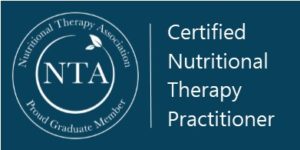Excerpt from Principles of Healthy Diets a complimentary pamphlet offered by The Weston A. Price Foundation. Weston A. Price Foundation is a nonprofit, tax-exempt nutrition education foundation. Read our mission statement. . . Become a member and receive our lively and informative quarterly journal. Click here for a message from Sally Fallon Morell. Read our Dietary Guidelines here.
 The crux of Dr. Price’s research has to do with what he called the “fat-soluble activators,” vitamins found in the fats and organ meats of grass-fed animals and in certain seafoods, such as fish eggs, shellfish, oily fish and fish liver oil. The three fat-soluble activators are vitamin A, vitamin D and a nutrient he referred to as Activator X, now considered to be vitamin K2, the animal form of vitamin K. In traditional diets, levels of these key nutrients were about ten times higher than levels in diets based on the foods of modern commerce, containing sugar, white flour and vegetable oil. Dr. Price referred to these vitamins as activators because they serve as the catalysts for mineral absorption. Without them, minerals cannot be used by the body, no matter how plentiful they may be in the diet.
The crux of Dr. Price’s research has to do with what he called the “fat-soluble activators,” vitamins found in the fats and organ meats of grass-fed animals and in certain seafoods, such as fish eggs, shellfish, oily fish and fish liver oil. The three fat-soluble activators are vitamin A, vitamin D and a nutrient he referred to as Activator X, now considered to be vitamin K2, the animal form of vitamin K. In traditional diets, levels of these key nutrients were about ten times higher than levels in diets based on the foods of modern commerce, containing sugar, white flour and vegetable oil. Dr. Price referred to these vitamins as activators because they serve as the catalysts for mineral absorption. Without them, minerals cannot be used by the body, no matter how plentiful they may be in the diet.
Modern research completely validates the findings of Dr. Price. We now know that vitamin A is vital for mineral and protein metabolism, their prevention of birth defects, the optimum development of infants and children, protection against infection, the production of stress and sex hormones, thyroid function, and healthy eyes, skin and bones. Vitamin a is depleted by stress, infection, fever, heavy exercise, exposure to pesticides and industrial chemicals, and excess protein consumption (hence our warnings against the consumption of excess protein in the form of lean meat, lowfat milk and protein powders.)
Modern research has also revealed the many roles played by vitamin D, which is needed for mineral metabolism, healthy bones and nervous system, muscle tone, reproductive health, insulin production, protection against depression, and protection against chronic diseases like cancer and heart disease.
Vitamin K plays an important role in growth and facial development, normal reproduction, development of healthy bones and teeth, protection against calcification and inflammation of the arteries, myelin synthesis and learning capacity.
Modern health literature is rife with misinformation about the fat-soluble vitamins. Many health writers claim that humans can obtain adequate vitamin A from plant foods. But the carotenes in plant foods are not true vitamin A. Instead, they serve as precursors that are converted into vitamin A in the small intestine. Human beings are not good converters of vitamin A, especially as infants or when they suffer from diabetes, thyroid problems or intestinal disorders. Thus, for optimal health, humans require animal foods containing liberal amounts of vitamin A. Similarly many claim that adequate vitamin D can be obtained from a short daily exposure to sunlight. But the body only makes vitamin D when the sun is directly overhead, that is, in the summer months, during midday. For most of the year (and even in the summer for those who do not make a practice of sunbathing), humans must obtain vitamin D from foods. As for vitamin K, most health books mention only its role in blood clotting, without recognizing the many other vital roles played by this nutrient.
Vitamins A, D and K work synergistically. Vitamins A and D tell cells to make certain proteins; after the cellular enzymes make these proteins, they are activated by vitamin K. This synergy explains reports of toxicity from taking vitamins A, D or K in isolation All three of these nutrients must come together in the diet or the body will develop deficiencies in the missing activators.
The vital roles of these fat-soluble vitamins and the high levels found in the diets of healthy traditional peoples confirm the importance of pasture-feeding livestock. If domestic animals are not consuming green grass, vitamins A and K will be largely missing from their fat, organ meats, butterfat and egg yolks; if the animals are not raised in sunlight, vitamin D will be largely missing from these foods.
Because it is so difficult to obtain adequate fat-soluble activators in the modern diet, Dr. Price recommended cod liver oil to provide vitamins A and D, along with a source of vitamin K, such as butter from grass-fed animals or what he called high-vitamin butter oil, made by low-temperature centrifuging of butter from cows eating rapidly growing grass. consumed in liberal amounts during pregnancy, lactation and the period of growth, these nutrients ensure the optimal physical and mental development of children; consumed by adults, these nutrients protect against acute and chronic disease.
It is important to choose cod liver oil with care as many brands contain very little vitamin D, with potential toxicity of vitamin A. For recommended brands see the Cod Liver Oil page of the Health Topics page of the Weston A. Price Foundation website.







